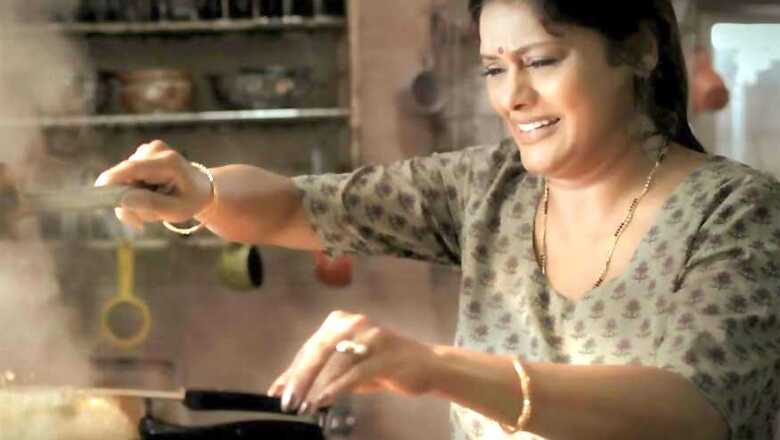
views
In Heena D Souza’s short film Pressure Cooker, familiarity of the old and longing for the new comes to life through the lens of a middle-class Bombay housewife and the whistles from a steaming kitchen appliance. Set in the 1990s, when commodities had an emotional value attached to them, a lonely homemaker begins to get attracted to a novelty- pressure cooker, which is the metaphorical face of an attractive young man. But will she welcome the newness in her routine life with or will she resort to making slight amends to the old and continue to relish the familiar?
Pallavi Joshi, who plays Swati, the wife of a dispirited husband, believes that the beauty of the short is that it’s a simple film narrated without any extravagance or fake intellect. “There are so many hidden layers in it even when you are following a very simple story. The director hasn’t tried to tell you which angle you should follow, she hasn’t tried to play the intellectual card at all. It’s told so simply that you understand every little nuance in it," she shares. Like her character in the film realizes that even though caught in the rut, the old will always be gold, Joshi admits that the times have changed and for someone belonging to that era, not everything was a throwaway fashion, saying, “Back in our times when I was a kid, the things and appliances used to run for a long time- a transistor, two in one set, TV- for 10-12 years people used the same set. That doesn’t happen anymore. We’re living in an age where even Apple has confessed to slowing down their phones once the new models are out. And that mindset translates to everything else too. In today’s time, even the relationships are now 'use and throw', like disposable relationships."
Just like her on-screen husband draws a parallel between the appliances and relationships saying, “Cheezo ko pyaar se istemaal karo na, toh lambi chalti hai," Joshi believes that the children of today don’t learn to hold on things. “In times like these, when there’s a comment on a relationship like that in the film, it gives you a sense that everything is not use and throw. There are certain things that can go on and on with a little bit of adjustment and certain compromises."
Having worked in numerous television series including Justajoo, Aarohan, Alpviram and Peshwa Bajirao, Joshi says that the digital platform gives you a freedom and liberty to do experimental stories. “It just starts somewhere in the middle and ends somewhere in the middle. Not without sense but you are under no pressure like with films and television, there’s a certain kind of routes that you’ve to follow. They are more restrictive. For films, you’ve to ensure that you get your box office but here its open-ended and you can tell whichever story you want to.

She also acknowledges that even though gender bias continues to exist in the industry, the times are now changing. “Even now I get so many screenplays that have a woman in the lead but doesn’t have a romantic angle. And they tell me ye jo ladki hai na, wo film ki hero hai. Don’t call us a hero, call us a protagonist! Why do you have to use a male gender to explain heroism? Because it’s all been seen from the male point of view. Women have always been stereotyped because men saw us in only one light but women are actually multi-dimensional. So when women start writing stories about women, women start directing stories about women, then you feel the real essence of who women are," she adds.



















Comments
0 comment